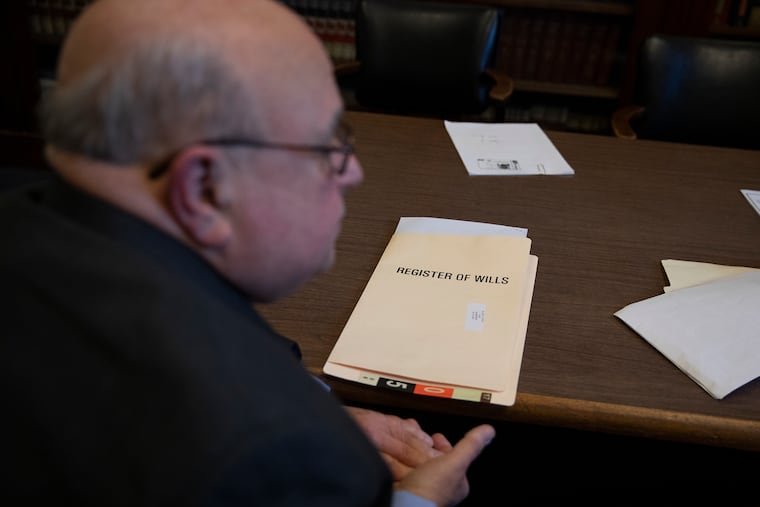Office of Register of Wills should be eliminated | Editorial
A primer on some of the offices key in the upcoming election

The upcoming May 21 primary promises to be ground-breaking for a number of reasons. The sheer number of candidates for City Council – almost 70—is notable, as are the number of candidates running for less well known offices, like Commissioner and Register of Wills. To help voters better understand the functions of some of these offices as well as what is at stake, this special “Primary School “ editorial series will introduce you to the key issues, offices, and players.
This week: The Register of Wills.
. On the ballot: Ronald Donatucci (D-Incumbent), Tracey Gordon,Jacque Whaumbush. Voters elect one
Overview: This row office is entrusted with receiving wills for probate, collecting inheritance taxes, maintaining records of wills, estate inventories and other documents, and issuing marriage licenses. The office operates with about
70 employees and a budget close to $4 million.
An outlier: Although considered one of City Hall’s “row offices,” this office is not a city agency and doesn’t operate under the home rule charter. That means, among other things, that its employees are not part of the civil service system. Presumably, it is also not subject to the city’s campaign contribution rules. It also means it would take more than action from City Council to get rid of it.
The million dollar question: Why do we have an elected Register of Wills? The function of the Register of Wills is largely to support the courts. In 2009, both the Committee of Seventy and the Pennsylvania Intergovernmental Cooperation Agency issued reports arguing for the elimination of this and other row offices. (The title of one: “Needless Jobs.” The title of the other: “A history we can no longer afford: Consolidating Philadelphia’s Row Offices.” )
The existence of the office as a stand alone is redundant and wasteful. As the PICA report says, "The functions of government should be organized on the basis of efficiency and effectiveness, not on the basis of an inherited centuries-old structure.” We, too, argue for its elimination.
What would that take? According to one reading of the PICA report, a referendum could put the office under the Home Rule Charter, which would enable the city to get rid of it.
The current office holder: Ron Donatucci is seeking his 11th term; he earns a yearly salary of $130,000. The Committee of Seventy’s report pointed out few complaints about performance of the office, but in disputes over ownership, the office is a critical arbitrator. Recently, the Inquirer reported about a scheme to steal the house of a dead woman by forging a will. The Register of Wills certified the fake will, giving claim to the thief and requiring the woman’s family members to seek criminal prosecution to reclaim the estate.
The Register of Wills is infamous for being a patronage mill -- a fact that Donatucci does not contest.
Above all, the existence of the Register of Wills on the ballot is unfair to voters. It is almost impossible to assess candidates, and voters are forced to make a decision in the dark -- making the election not about merit but about political clout. The sooner it goes away, the better.